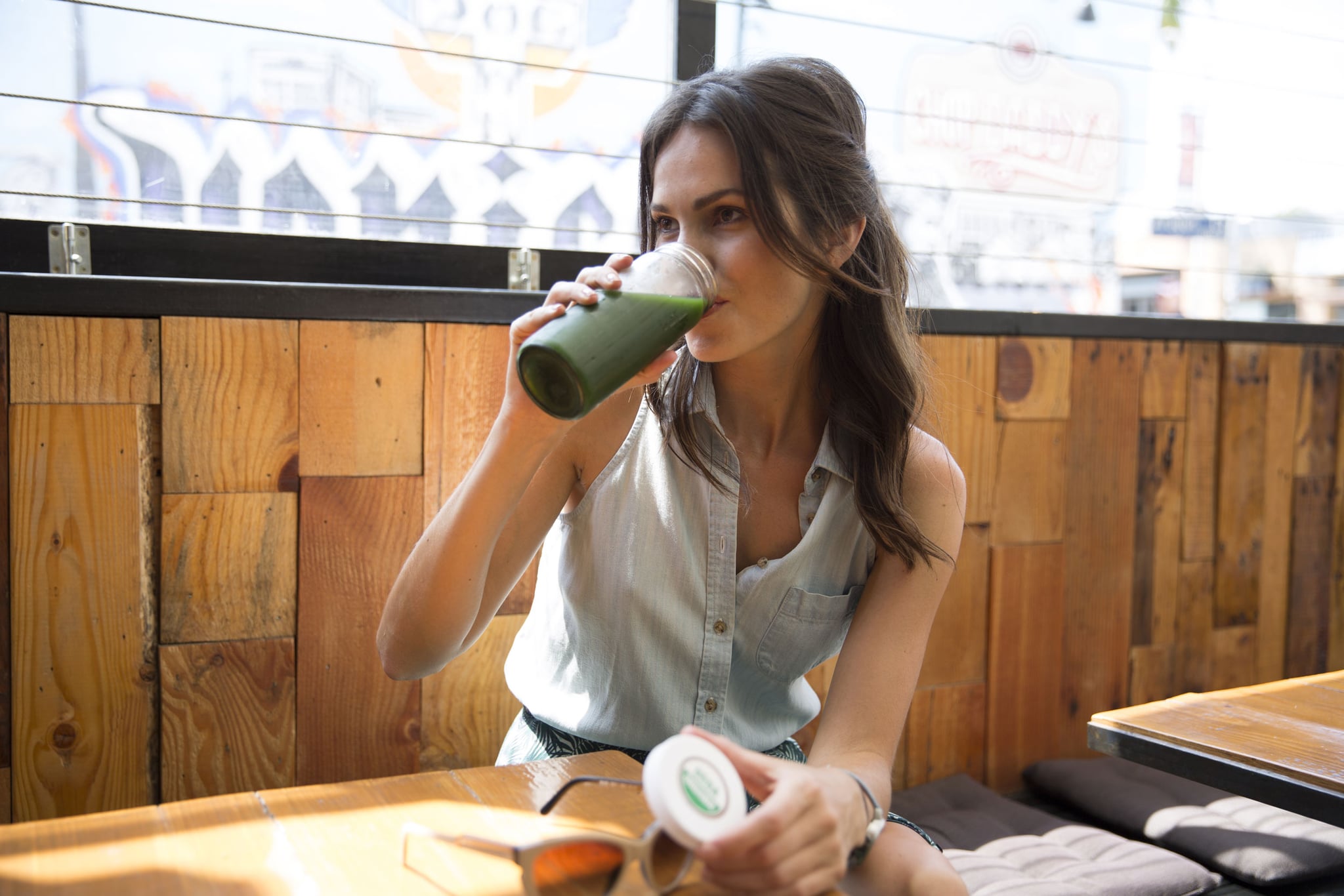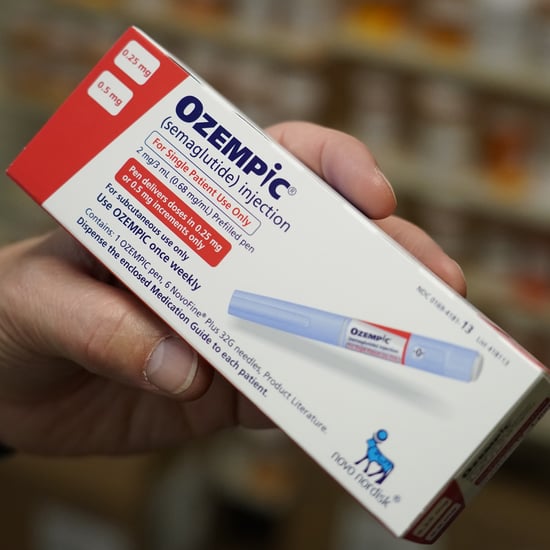Are Juice Cleanses Good For Weight Loss?
Before You Go on a Juice Cleanse to Lose Weight, Read This Doctor's Warning
Pizza, cookies, and ice cream have basically been your diet for weeks. If you feel crappy from eating junk food and have also gained a little weight, you may be thinking about going on a juice cleanse to detox the body, jump-start a little weight loss, and inspire a commitment to eating healthier. Dr. Luiza Petre, a board-certified cardiologist with extensive training and experience in healthy diet and weight loss, shares a bit of her expertise on the matter.

Juicing is the process of extracting liquid out of fresh fruits and vegetables, leaving behind most of the healthy fibre and some antioxidants found in the skins and seeds. For instance, the white pulp in an orange provides flavonoids (antioxidants with anti-inflammatory and immune-system-boosting benefits) that are often left behind. There are fruit-only, veggie-only, and fruit-and-veggie juices. Some people juice their own, while others go the easier route and purchase fresh juices.
Are Juice Cleanses Good For Weight Loss?
One glass of orange juice is equivalent to one can of soda or six teaspoons of sugar.
Luiza says drinking a nutritious fresh-pressed juice can absolutely be beneficial as part of your healthy diet. But limiting your diet to strictly juices for days or even weeks is not the magic solution people are claiming it to be. One metabolic disadvantage of juicing and removing the fibre is that it creates a "high-fructose-loaded syrup," which our body converts from a slow-absorbing carbohydrate into a fast-absorbing one. This triggers an increased insulin response that will only make us hungrier, making it harder to lose weight. For example, one glass of orange juice is equivalent to one can of soda or six teaspoons of sugar. Shocking, right?!
"When people exclude their favourite foods from their diet for a period of time, they tend to reward themselves afterward, which can often lead to overeating," adds Luiza. The vast majority of weight loss during a juicing diet plan is mostly water weight and will probably be gained back again once your everyday eating habits resume.
Plus, juices are by no means calorie-free! Luiza says, "While juicing is probably low-calorie compared to chips and sodas, it is still a very concentrated source of calories. A cup of pineapple is about 83 calories, but a cup of pineapple juice is 120 calories. You might not realise how much sugar you're consuming when you drink fruit juice."
Are There Negative Side Effects to Juice Cleansing For Weight Loss?
One important thing to note is that many juice diets involve consuming no protein at all or, at most, a very small amount, which isn't sufficient for proper body functioning. Your body needs a daily supply of protein intake in order to not lose muscle mass. Individuals can get sick if continued due to lack of fibre and protein. This could also affect older adults who are more susceptible to infections because they may already have lowered protein stores.
Also, although the scale numbers may go down, it's a false sense of weight loss, as most of the weight loss from juicing comes from water and bowel content loss and less likely from fat. Not to mention, buying fresh-presses juices is expensive!
Luiza adds that "when done for 10 days, the empty-calorie intake could send the body into starvation mode, meaning it will try to conserve calories by slowing down your metabolism, resulting in difficulties in losing weight in the long-term. Shocking metabolism more than 72 hours on a low-calorie, almost-no-protein/fat juicing diet can create hunger rebound at the end through increasing ghrelin."
By not providing the body with sufficient protein, you may also lose muscle mass (bye-bye, booty gains!). Immunity, reproduction, and hormonal function are also dependent on metabolic rate and healthy fat and protein intake. Your brain function and skin appearance may also suffer as well.
What's the Difference Sugar-Wise Between Eating Fruit and Drinking Juice?
Since fruit contains fibre, sugar absorption will be delayed, whereas when drinking juice, the sugar "goes on the highway straight into your bloodstream." You'll not only feel a spike from the insulin and then a crash, but note that "it takes three oranges to make one glass of orange juice." That's a whole lot more sugar and more calories, plus you'll feel less satiated. Luiza says it will be better for your health just eating one full fruit.



